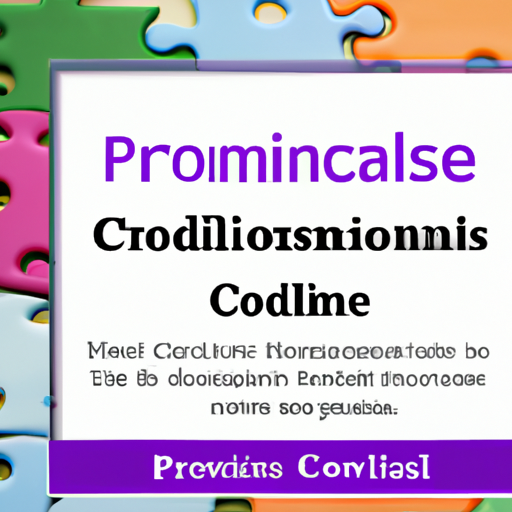
In any relationship, disagreements are bound to arise. But rather than letting them drive a wedge between you and your loved ones, there is a way to handle these conflicts that can actually bring you closer together. By approaching disagreements with empathy, active listening, and a willingness to find common ground, you can transform tense moments into opportunities for growth and understanding. In this article, we will explore effective strategies for handling disagreements that not only preserve the integrity of your relationships, but also strengthen them in the process. So, let’s explore how we can navigate disagreements in a way that fosters deeper connection and mutual respect.

Get Your Romance Back On Check Click Here To Learn More!
Understanding the Nature of Disagreements
Recognizing the inevitability of disagreements
Disagreements are a natural part of any relationship, whether it be with a friend, family member, coworker, or romantic partner. It’s important to recognize that disagreements are not inherently negative, but rather an opportunity for growth and understanding. No two individuals are exactly alike, and it is only natural that differences in opinions, beliefs, and values may arise. By acknowledging the inevitability of disagreements, we can approach them with a more open and constructive mindset.
Understanding the role of emotions in disagreements
Emotions play a significant role in disagreements. They can influence the way we perceive and respond to the conflicting viewpoints of others. It’s important to recognize and validate both your own emotions and those of the person you are in disagreement with. Emotions can range from frustration and anger to sadness or even fear. By understanding that emotions are a normal part of the disagreement process, we can learn to approach them with empathy and understanding.
Exploring the underlying reasons for disagreements
Disagreements often stem from a variety of underlying reasons. These can include differences in upbringing, personal experiences, cultural background, and even personal values. It is crucial to understand that these factors shape an individual’s perspective and can lead to differing opinions and beliefs. By exploring the underlying reasons for disagreements, we can gain insight into the other person’s perspective and work towards finding common ground.
Developing Effective Communication Skills
Active listening and empathetic understanding
One of the key elements of effective communication is active listening. It involves fully engaging with the other person’s viewpoint, focusing on their words, and demonstrating interest and attentiveness. By actively listening, you show respect and validate the other person’s feelings and opinions. Additionally, practicing empathetic understanding allows you to put yourself in the other person’s shoes and see the situation from their perspective. This can help bridge the gap between differing viewpoints and foster a deeper connection.
Using ‘I’ statements instead of ‘you’ accusations
When expressing your own thoughts and feelings during a disagreement, it is important to use “I” statements instead of “you” accusations. By using “I” statements, you take ownership of your own perspective and feelings rather than placing blame on the other person. This creates a non-confrontational environment and encourages open dialogue. For example, instead of saying, “You always interrupt me,” you can reframe it as, “I feel frustrated when I get interrupted during our conversations.”
Expressing oneself assertively but respectfully
Expressing oneself assertively but respectfully is key to healthy disagreements. Being assertive means clearly and confidently stating your thoughts and feelings without aggression or hostility. It is important to choose your words carefully, avoiding personal attacks and demeaning language. Remember, expressing yourself assertively allows you to contribute to the conversation effectively while maintaining respect for the other person. This promotes a safe and non-threatening environment where both parties can feel heard and valued.
Get Your Romance Back On Check Click Here To Learn More!
Creating a Safe and Non-Threatening Environment
Establishing ground rules for respectful discussions
To create a safe and non-threatening environment for disagreements, it is helpful to establish ground rules for respectful discussions. These ground rules can include guidelines such as speaking one at a time, actively listening without interruptions, and refraining from personal attacks. By setting and agreeing upon these rules, both parties can feel more comfortable expressing their opinions and engaging in constructive dialogue.
Avoiding demeaning language and personal attacks
Demeaning language and personal attacks have no place in healthy disagreements. Such behavior only escalates the tension and hinders productive communication. It is crucial to avoid insults, name-calling, or belittling the other person’s perspective. Instead, focus on addressing the issue at hand and finding a resolution. By maintaining a respectful and civil tone, you can keep the discussion focused and maintain the integrity of the relationship.
Encouraging open-mindedness and differing perspectives
Open-mindedness is essential when engaging in a disagreement. By actively seeking out and considering differing perspectives, you broaden your understanding of the issue and increase the likelihood of finding common ground. Encourage the other person to share their thoughts and actively listen to their point of view. Remember, the goal is not to prove the other person wrong but to foster understanding and strengthen the relationship through respectful exchange of ideas.
Practicing Emotional Intelligence
Self-awareness of personal emotions
Developing emotional intelligence plays a vital role in handling disagreements effectively. Self-awareness allows you to recognize and understand your own emotions. By being aware of how you feel, you can consciously manage your emotional response and prevent it from negatively impacting the discussion. Take a moment to reflect on your emotions before engaging in the disagreement to ensure a calm and collected demeanor.
Regulating emotions during heated disagreements
Emotions can run high during heated disagreements, making it challenging to maintain a productive conversation. It is essential to learn how to regulate these emotions to prevent them from derailing the discussion. Deep breathing exercises, taking a pause, or even stepping away temporarily can help you calm down and regain emotional balance. By managing your emotions, you can approach the disagreement with a clear mind and engage in a more constructive manner.
Empathizing with the emotions of the other person
Empathy plays a key role in fostering understanding and connection during disagreements. Put yourself in the other person’s shoes and try to understand their emotions and perspective. By acknowledging and empathizing with their feelings, you create a safe space for them to express themselves. Showing empathy helps to de-escalate conflicts and encourages the other person to reciprocate, leading to a more peaceful resolution.

Finding Common Ground
Identifying shared values and goals
Finding common ground is an essential aspect of resolving disagreements. Identify shared values and goals that both parties can agree upon. Focus on areas where your perspectives align and build upon them. By emphasizing commonalities, you can shift the focus away from differences and work towards shared solutions.
Focusing on areas of agreement
When in a disagreement, it is easy to get caught up in opposing viewpoints. However, shifting the focus towards areas of agreement can help ease tension and build rapport. Acknowledge and validate the other person’s perspective when you find points of agreement. Taking this approach shows that you are actively seeking common ground and can lead to a more productive conversation.
Seeking compromise and win-win solutions
Rather than approaching a disagreement with a win-lose mentality, strive for win-win solutions. A compromise implies finding a middle ground where both parties are satisfied. By actively working together to find solutions that meet both of your needs, you can deepen your relationship and foster a sense of cooperation and collaboration. Remember, a win-win outcome benefits everyone involved.
Appreciating Diversity of Opinion
Recognizing the value of different perspectives
Diversity of opinion is a valuable asset when navigating disagreements. It brings forth a variety of ideas, insights, and experiences that enrich the conversation. By recognizing the value of different perspectives, you can approach disagreements with a mindset of curiosity and learning. Embrace the opportunity to broaden your understanding and challenge your own beliefs.
Encouraging dialogue and open discussion
Encouraging dialogue and open discussion is crucial in appreciating diversity of opinion. Create an environment where everyone feels comfortable sharing their thoughts and expressing their viewpoints. Encourage questions, active listening, and respectful communication. By promoting open dialogue, you foster an atmosphere of respect and mutual understanding.
Learning from differing viewpoints
Disagreements provide an opportunity for personal growth and learning. Be open to learning from differing viewpoints, even if you ultimately maintain your own perspective. Engage in reflective thinking and consider the merits of alternative ideas. By staying open-minded and embracing differing viewpoints, you can expand your knowledge, challenge your assumptions, and strengthen your relationship.

Maintaining Respect and Civility
Avoiding disrespectful behaviors and tones
Respect and civility are essential throughout the entire disagreement process. Avoid engaging in disrespectful behaviors such as interrupting, talking over, or dismissing the other person. Additionally, be mindful of your tone of voice, ensuring that it remains calm and civil. Treat the other person with kindness and consideration, even if you disagree. Remember, respect is the foundation for healthy and meaningful relationships.
Respecting the other person’s dignity
Respecting the other person’s dignity is crucial, regardless of the disagreement at hand. Treat them with the same level of decency and respect that you would expect for yourself. Avoid personal attacks, derogatory remarks, or any behavior that may belittle or demean them. View the other person as an individual deserving of respect and maintain the integrity of your relationship.
Acknowledging the validity of differing opinions
Disagreements often arise due to differences in opinions, and it is important to acknowledge the validity of these differing views. Just because someone disagrees with you does not mean their opinion is invalid or unworthy. Acknowledge the other person’s right to their perspective and express a willingness to consider their viewpoint. By doing so, you demonstrate respect and create an environment that encourages mutual respect.
Taking Breaks and Engaging in Self-Care
Recognizing when emotions are overwhelming
During particularly heated or intense disagreements, it is important to recognize when emotions are overwhelming. Intense emotions can cloud judgment and hinder effective communication. Pay attention to physical and emotional signs, such as increased heart rate, tension, or frustration, that indicate you may be becoming overwhelmed. Taking a step back to assess your emotional state allows you to engage in the discussion with a clear mind.
Agreeing to pause the discussion for a while
Agreeing to pause the discussion for a while can be crucial in maintaining a healthy conflict resolution process. If emotions are running high or the conversation becomes unproductive, both parties can benefit from taking a breather. Agree upon a time to reconvene and allow yourselves the space to calm down and collect your thoughts. By doing so, you prevent further escalation and create an opportunity for a more productive conversation later.
Engaging in self-care to restore emotional balance
Engaging in self-care is vital when dealing with disagreements. Take the time to indulge in activities that restore your emotional balance and promote well-being. Whether it’s going for a walk, practicing mindfulness, or engaging in a favorite hobby, prioritize self-care to reduce stress and reaffirm your emotional equilibrium. By focusing on self-care, you can better face the challenges that come with disagreements.

Seeking Mediation or Professional Help
Knowing when to involve a neutral third party
In some cases, disagreements may become too complex or emotionally charged to handle on your own. Knowing when to involve a neutral third party, such as a mediator or counselor, can be beneficial in facilitating a resolution. A third party can provide an unbiased perspective, guide the conversation, and offer valuable insights to help both parties find common ground. Consider seeking mediation or professional help when disagreements persist or become unmanageable.
Considering the benefits of professional guidance
Professional guidance can be immensely helpful when navigating disagreements. Therapists, counselors, or conflict resolution experts have the skills and knowledge to guide you through the process of finding resolutions in a healthy and productive way. They can help you and the other person communicate more effectively, manage emotions, and provide practical strategies for conflict resolution. By considering the benefits of professional guidance, you open up the possibility of a more positive outcome.
Exploring mediation techniques for conflict resolution
Mediation techniques offer a structured approach to conflict resolution. These techniques involve a neutral mediator who helps facilitate open communication and finding mutually agreeable solutions. Mediation encourages active listening, empathy, and compromise. By exploring mediation techniques, you can gain valuable skills for resolving disagreements and strengthen your relationship through constructive collaboration.
Learning and Growing from Disagreements
Reflecting on the causes and outcomes of disagreements
After a disagreement has been resolved, take the time to reflect on the causes and outcomes. Reflection allows you to gain insight into the underlying reasons for the disagreement and consider how it was ultimately resolved. Identify any patterns or recurring themes in your disagreements to help address them in the future. By reflecting on disagreements, you can learn and grow both as an individual and within the context of the relationship.
Identifying areas for personal growth and improvement
Disagreements offer an opportunity for personal growth and improvement. Identify areas where you can develop better communication skills or emotional regulation. Consider ways in which you can become more open-minded and empathetic towards differing opinions. Committing to personal growth and improvement not only strengthens your ability to handle disagreements but also enhances the overall quality of your relationships.
Viewing disagreements as opportunities for strengthening the relationship
Rather than viewing disagreements as obstacles or threats to your relationship, see them as opportunities for growth and strengthening your bond. Disagreements can deepen your understanding of one another, promote mutual respect, and foster resilience in the face of challenges. Embrace the lessons learned from disagreements and recognize that navigating conflicts together can lead to a stronger, more resilient relationship in the long run.
Handling disagreements in a way that deepens our relationship instead of harming it requires a proactive and empathetic approach. By understanding the nature of disagreements and their emotional underpinnings, we can develop effective communication skills. Creating a safe and non-threatening environment involves maintaining respect and civility while appreciating diversity of opinion. Practicing emotional intelligence enables us to regulate our emotions and empathize with others. Finding common ground and seeking win-win solutions can lead to positive outcomes. Taking breaks and engaging in self-care ensures emotional balance, while seeking mediation or professional help when necessary demonstrates a commitment to growth. Ultimately, disagreements can be viewed as opportunities for personal and relational development, strengthening our relationships and deepening our understanding of one another.




